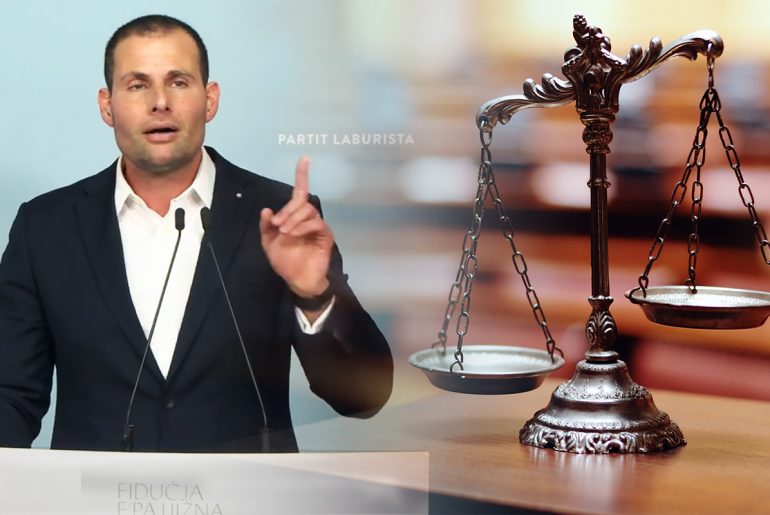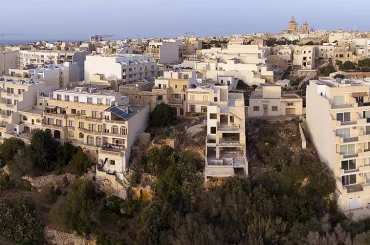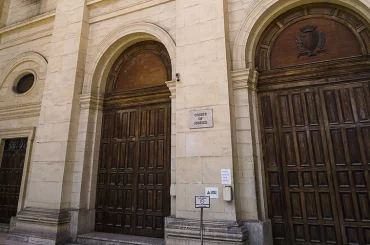Much has been made about the Prime Minister’s speech yesterday morning in which he blamed the judiciary for lenient sentences that presumably fail to serve as a deterrent. Robert Abela was talking in the context of societal anxiety over senseless, ghastly crimes such as youths in Valletta allegedly going on beating rampages, or the young man who mowed down the Turkish young woman in Gzira last week.
The NGO Repubblika has referred the case the Commission for the Administration of Justice, arguing that the magistrate who spoke to Abela privately to lament that the Court of Appeal habitually lessens punishment is in breach of the judiciary’s code of ethics. The Chamber of Advocates also said that the magistrate breached the code of ethics, and called the Prime Minister’s remarks a “superficial” evaluation of court sentencing. And the green party even requested a meeting with the Commission for the Administration of Justice, which is the entity that enforces the judiciary code of ethics.
Arnold Cassola meanwhile wrote to the Standards Commissioner to request an investigation over possible breach of parliamentarian’s code of ethics by Abela.
In his comments, Abela said that he had spoken to a magistrate and that “she” told him that whenever magistrate mete out harsh sentences, the judges at the Court of Appeal lessen the punishment on the basis of jurisprudence. Abela then said something that suggested that this practice is not right, or outdated.
This ignores the dynamics of the Maltese legal system, which is a hybrid between continental civil law and British common law. In common law, the law is mostly built up by jurisprudence – which is the body of judicial decisions in a given area or law – while written law takes greater weighting in civil law systems. Malta has a hybrid system.
In effect, laws can be compared to the bare bones while jurisprudence then fleshes out those laws. You cannot separate the two – as a lawyer, Abela knows that.
Moreover, when it comes to lawlessness in the country, courts are not the main problem. A variety of factors account for the main problems, and these include a culture of impunity that is constantly nourished by widespread corruption, police inaction against corruption, and weak or spotty law enforcement by agencies across the board, especially the police.
The police force is in bad shape. It has been losing sharp investigators to resignations and retirement, investigations have been stalling at the all-important financial crimes department, and and the focus on community policing – a programme that politicians like to love – has exacerbated shortages of police in other departments.
A related issue is the quality of prosecutions. Courts decide on the basis of evidence brought before them, and if the evidence is wanting or scant, then that leads to acquittals or low punishment.
Poor, skimpy investigations and prosecutions is probably the largest problem in securing convictions.
Even in cases where lawyers of the Attorney General office now handle prosecutions (in crimes punishable by more than 2 years imprisonment), following a change in law two years ago, the results have been lacklustre. One of the problems is that the Attorney General’s office is mostly staffed by young, inexperienced lawyers, and led by a lawyer who never had any experience in the criminal court before she became Attorney General.
There was much perplexity at her appointment just over two years ago, and she has since become embroiled in damaging controversies that intensify the sense of siege and hopelessness that ultimately hampers prosecutions.
But instead of making a comprehensive speech on the problems affecting law and order, yesterday the Prime Minister decided to superficially blame the Court of Appeal for employing jurisprudence in its decisions.
This is not the first time that Abela has pointed fingers at the courts over lawlessness in recent weeks.
What this suggests is that the issue of lawlessness, or law and order, is becoming an issue that resonates with voters. High-profile incidents such as the mowing down of Kelin Paya (the Turkish woman) are exceptional atrocities of exceptionally wicked or deranged individuals, but the problem for the government is that in the public perception these are becoming symbolic of wider breakdown of law and order, or wider lawlessness or impunity.
The PN is certainly focusing on the issue. Several MPs are talking up the issue, and this includes the PN’s Gozo spokesperson, Alex Borg, who last week published a vlog on Facebook in which he spoke outside a police station, saying that voters have been telling him of their concerns over law and order.
The PN has also recently appointed a shadow spokesperson on quality of life, and law and order is probably set to become part of his talking points.
Labour is certainly feeling the pressure as voter disengagement with the traditional parties has increased steadily since the last election.
Blaming courts for lawlessness might distract from the government’s culpability in the perception of voters, at least with a swathe of voters, but it is populist and damaging. Ultimately, putting pressure on the courts may even unwittingly undermine the fight against crime.
Sustain Analyses & Insight
Robustly researched and professionally delivered analyses and insight features on this website take much time, effort, and resources to produce. This website's donation setup itself is uniquely transparent, with targeted amounts – of just €50 every month for analyses – that allow tracking of donations in real time on the page. Contribute as little as €5.





